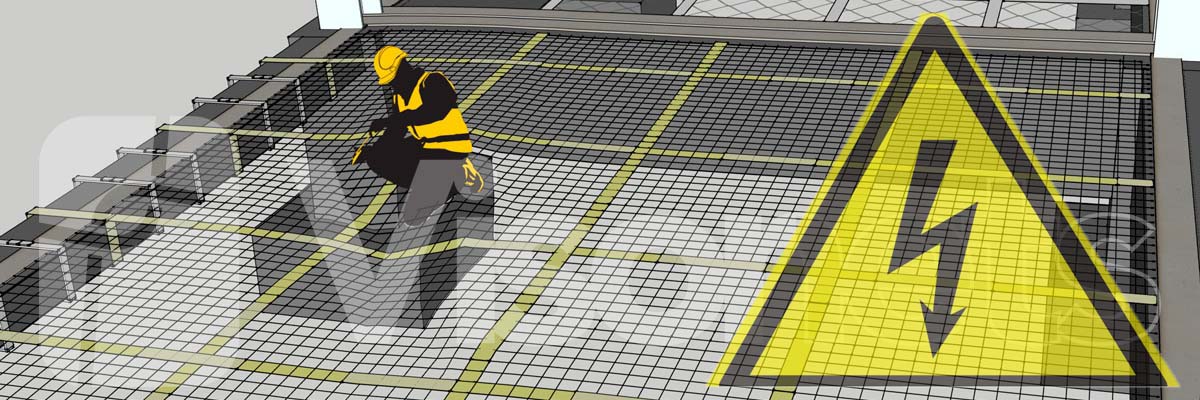Polypropylene and electricity
Safety nets are most commonly made of knotless polypropylene.
One of the great advantages of this synthetic material is that the polypropylene fibres are generally very stable and have certain very interesting characteristics such as:
- Mechanical resistance, both to impact and fatigue
- Certain elasticity, not easily fractured
- High melting point (at around 160ºC)
- Low moisture absorption
- Chemical resistance to both acid and alkaline substances
- Lightness, given its relatively low density
- It is not electrically conductive.
In these rainy days when it is necessary to continue working at a certain height, such as industrial maintenance or public lighting, new installations of low and medium voltage networks, etc., apart from having the appropriate means for access and the relevant individual protection measures, it is convenient to know that we can count on the safety nets made of knotless polypropylene so that they provide us with a double benefit:
– to protect us in case of work at height with risk of falling to different levels or
– to isolate ourselves from the environment when working on them (as in the TAP nets), not being a conductor of electricity.
For all these reasons, safety nets as a tensioned access platform also provide security in electricity-related work. Visor’s technical team can advise you in your specific case. Please contact us.

